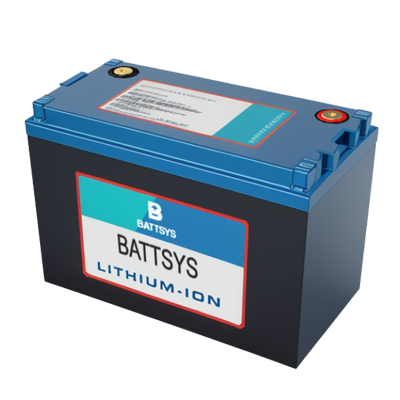Will it be safer to replace lead-acid batteries with
lithium batteries?
Nowadays, there is a technological revolution in the field of power and energy storage batteries. With its outstanding performance advantages, lithium batteries are gradually catching up with lead-acid batteries in multiple fields such as robotics, starter batteries, and light transportation. Some people may have such concerns: Will it be safer to replace lead-acid batteries with lithium batteries?
Under normal usage and maintenance requirements, both lithium batteries and lead-acid batteries are generally safe and reliable, but lead-acid batteries are safer in a few extreme situations or working conditions. Under the current technological level, lithium batteries have greatly reduced safety hazards and risks by adopting methods such as BMS strategy, flame retardant materials, thermal isolation technology, diaphragm and electrolyte optimization, and can even pass puncture testing, explosion-proof testing, etc. Powerful lithium battery manufacturers have strict standards to improve the safety of lithium batteries, from the selection of materials such as positive and negative electrodes, separators, and electrolytes, to the control of battery structure and parameters. Their safety of lithium batteries is also constantly improving.

At the same time, the product experience improvement brought by converting
lead-acid into lithium batteries is indeed very significant. Lithium batteries have higher energy density, longer lifespan, lower self discharge rate, more flexible appearance design, and more environmentally friendly material characteristics. These advantages enable lithium batteries to provide our electric devices with longer battery life, stronger power output, faster charging experience, and a more lightweight and aesthetically pleasing design.
